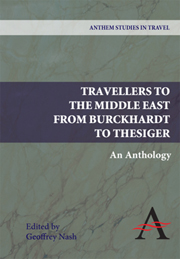Book contents
- Frontmatter
- Contents
- Acknowledgements
- Introduction
- PART ONE THE COMING OF EMPIRE 1800–1879
- PART TWO COLONIALISM AND RESISTANCE 1880–1950
- Ottoman and Former Ottoman Territories
- Arabia
- 1 ‘Some Excursions in Oman’
- 2 Revolt in the Desert
- 3 Ibn Sa'oud of Arabia: His People and His Land
- 4 The Southern Gates of Arabia
- 5 Arabia Felix
- 6 Arabian Sands
- Persia/Iran
- Bibliography
5 - Arabia Felix
from Arabia
Published online by Cambridge University Press: 05 March 2012
- Frontmatter
- Contents
- Acknowledgements
- Introduction
- PART ONE THE COMING OF EMPIRE 1800–1879
- PART TWO COLONIALISM AND RESISTANCE 1880–1950
- Ottoman and Former Ottoman Territories
- Arabia
- 1 ‘Some Excursions in Oman’
- 2 Revolt in the Desert
- 3 Ibn Sa'oud of Arabia: His People and His Land
- 4 The Southern Gates of Arabia
- 5 Arabia Felix
- 6 Arabian Sands
- Persia/Iran
- Bibliography
Summary
Thomas emerged from humble origins to become in 1930 the first Westerner to cross the Empty Quarter in Arabia. He fought on the Western Front in 1914–15 and survived. Transferred to Mesopotamia in the last two years of the war he caught the eye of Arnold Talbot Wilson, then acting civil commissioner in the Persian Gulf. Wilson – to whom he dedicated Arabia Felix – was the inspiration behind his later travels in Arabia. As a traveller Thomas acted on his own initiative, dressed like the locals, and spoke the native tongue. Working in the sultanate of Oman he was able to make his extensive journeys into the interior of Oman ‘that contributed substantially to the geographical and ethnological knowledge of the region’ (DNB). Thomas sustained a successful career as a colonial officer: he was later a public relations officer in Bahrain, 1942–3, and Director of the Middle East Centre for Arabic Studies.
From:
Arabia Felix (1938)
The issue as to who was the ‘real’ Bedouin and what his racial characteristics were exercised a number of European travellers such as Burton. The ethnological ‘research’ of skull-measuring which Thomas details in the following extract from Arabia Felix unfortunately cannot be disconnected from the practice of the pseudo-science pursued in Nazi Germany at almost the same time. But the piece also highlights interesting cultural differences between the African slaves and their Omani masters.
- Type
- Chapter
- Information
- Travellers to the Middle EastAn Anthology, pp. 227 - 235Publisher: Anthem PressPrint publication year: 2009



